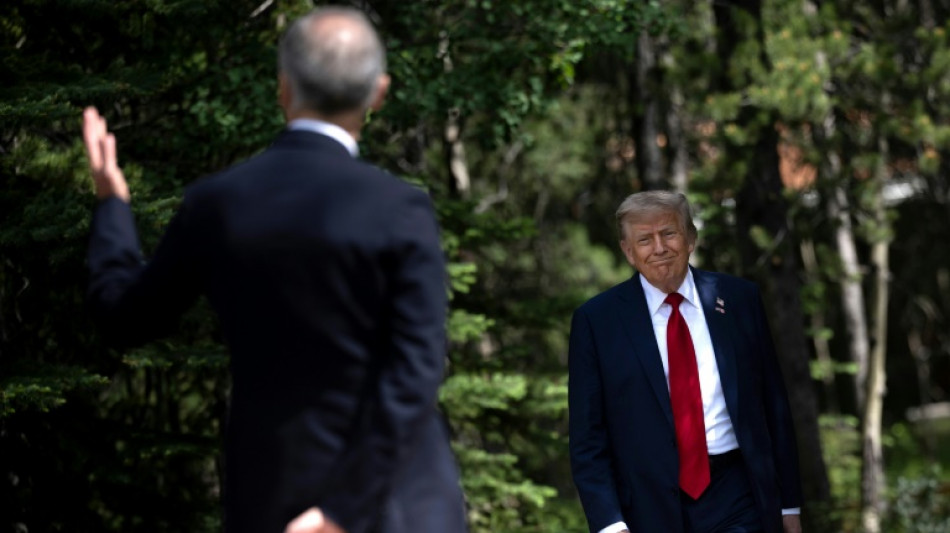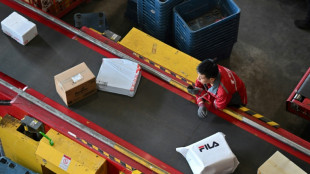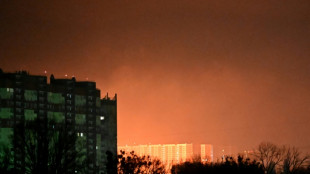

Trump's tariff threats and delays: state of play
US trading partners braced for a volley of tariff hikes this week, but a deadline for their imposition came and went as President Donald Trump delayed them again until August -- but unveiled new copper duties and increased levies on Canada and Brazil.
Here is a summary of the tariffs Trump has introduced in his second presidency as he pushes to reshape global trading ties.
- Global tariffs -
US "reciprocal" tariffs are due to jump from 10 percent to various higher levels for a list of dozens of economies come August 1, including the European Union and Japan.
The hike would have taken effect on July 9 but Trump postponed it, marking a second delay since their shock unveiling in April.
Trump in April also slapped a 10 percent "baseline" levy on most trading partners, which remains in place.
He has since begun issuing letters dictating tariff rates above 10 percent for individual countries, including Brazil, which has a trade deficit with the United States and was not on the initial list of higher "reciprocal" rates.
Only the UK and Vietnam have struck initial trade deals with Washington -- both include tariffs remaining in effect -- while China has managed to temporarily lower tit-for-tat duties.
Certain products such as pharmaceuticals, semiconductors and lumber are excluded from these tariffs, but may face separate action, as has already been the case for steel, aluminum, and soon copper. Gold and silver, alongside energy commodities, are also excluded.
Some nations have also been excluded, including US neighbors Canada and Mexico -- who have been separately targeted over illegal immigration and fentanyl -- and Russia.
- Canada, Mexico -
Canadian and Mexican products were hit by 25 percent US tariffs shortly after Trump returned to office this year, with a lower rate for Canadian energy.
But trade negotiations have been bumpy. Trump announced Thursday that Canadian goods will face a higher 35 percent duty from August 1.
Products entering the United States under the USMCA North American free trade pact, covering large swaths of products, are expected to remain exempt -- with Canadian energy resources and potash, used as fertilizer, to still face lower rates.
- China focus -
Trump has also taken special aim at China. The world's two biggest economies engaged in an escalating tariffs war this year before their temporary pullback.
Both sides imposed triple-digit duties on each other at one point, a level effectively described as a trade embargo.
After high level talks, Washington lowered its levies on Chinese goods to 30 percent and Beijing slashed its own to 10 percent, with the pause due to expire in mid-August.
The US level is higher as it includes a 20 percent tariff over China's alleged role in the global fentanyl trade.
Beyond expansive tariffs on Chinese products, Trump ordered the closure of a duty-free exemption for low-value parcels from the country. This adds to the cost of importing items like clothing and small electronics.
- Autos, metals -
Trump has targeted individual business sectors, imposing a 25 percent levy on steel and aluminum imports which he has since doubled to 50 percent.
On Wednesday, Trump unveiled plans for a 50 percent tariff on copper imports starting August 1.
He has also rolled out a 25 percent tariff on imported autos, although those entering under the USMCA can qualify for a lower rate.
Trump's auto tariffs impact vehicle parts too, although the president has issued rules to ensure automakers paying vehicle tariffs will not also be charged for certain other duties.
And he has ongoing investigations into imports of lumber, semiconductors, pharmaceuticals and critical minerals that could result in further duties.
- Legal challenges -
Trump's sweeping tariffs have faced legal challenges. The US Court of International Trade ruled in May that Trump had overstepped his authority with across-the-board global levies.
It blocked many of the duties from going into effect, prompting the Trump administration's challenge. A US federal appeals court has allowed these duties to remain while it considers the case.
K.Bastien--RTC



